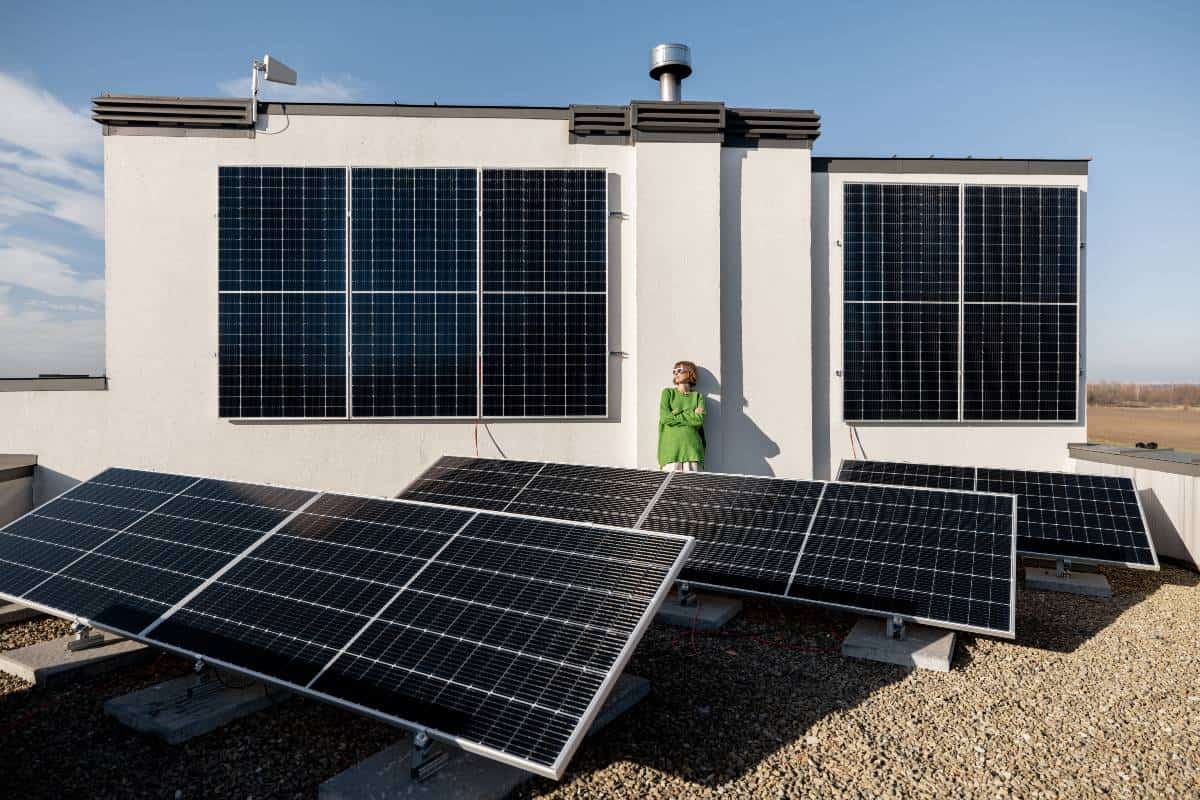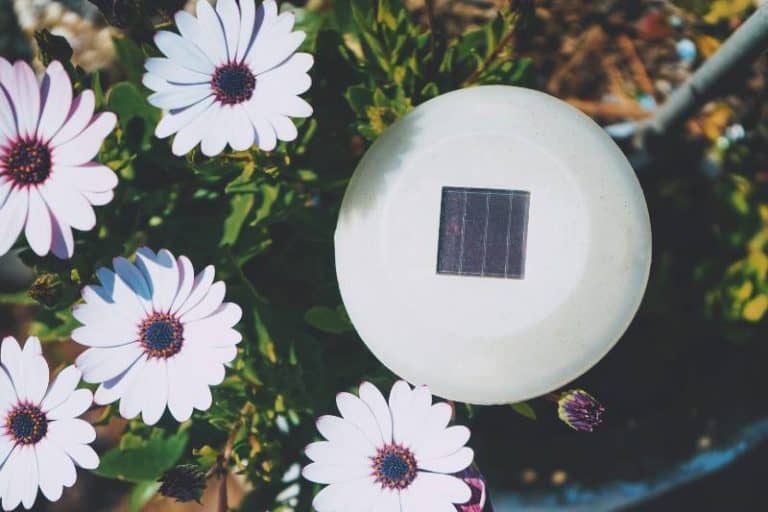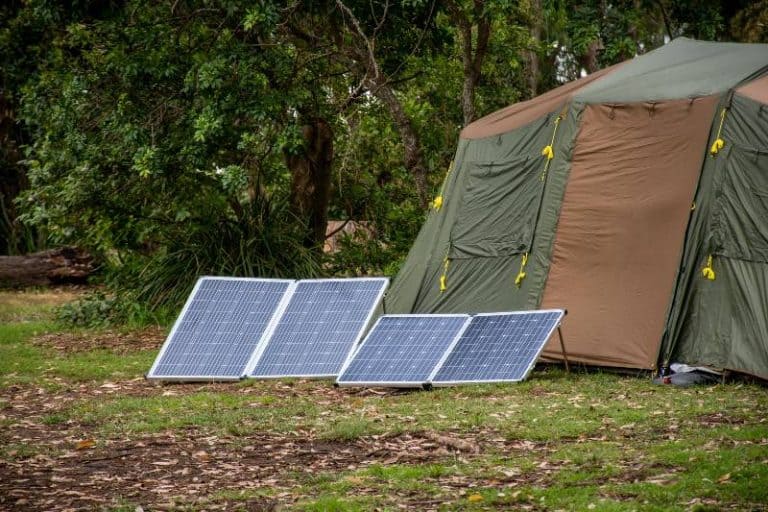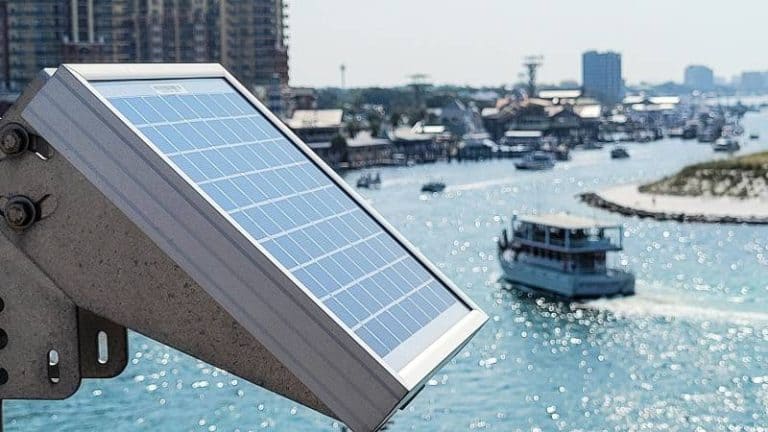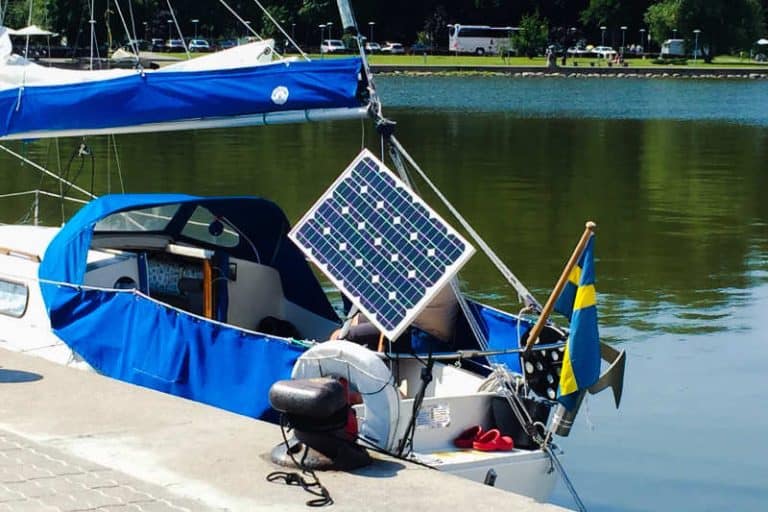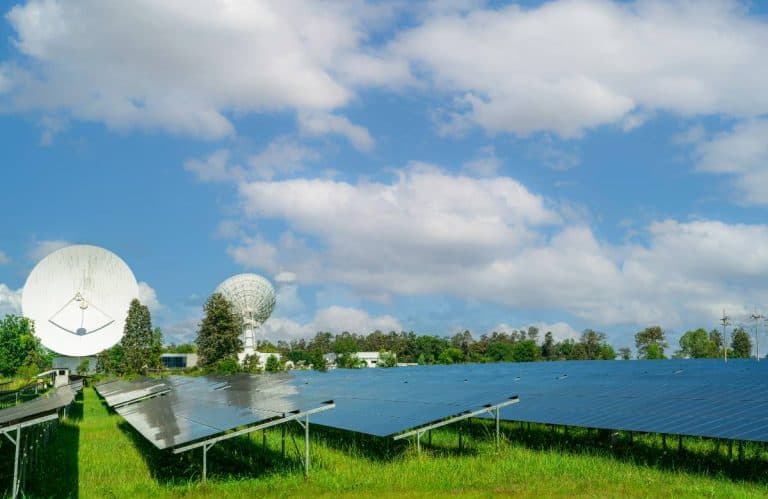Solar Power Storage: What’s The Solar Battery Storage
As the founder of Electrik Living, I’m on a mission to empower people to transition to sustainable living. My daughter Trinity, born on Earth Day, inspires me every day to ensure a brighter future for the next generation. An important part of that vision involves harnessing renewable energy sources like solar power.
Now, one of the biggest challenges with solar energy is that it’s not always available. Solar panels don’t generate any electricity at night. And even during the day, solar production fluctuates with sunshine levels.
This is where solar energy storage comes into play…
Key Takeaways
- Solar batteries allow you to store excess solar energy for later use, providing clean power around the clock.
- Choosing the right battery technology for your needs is crucial to ensure proper solar system performance and longevity.
- Following best practices like controlling the depth of discharge and temperature can maximize a solar battery’s lifespan.
- Proper solar and battery system sizing as well as professional installation are key for optimization.
Why Solar Power Storage Matters
- Energy independence
- Savings on electricity bills
- Backup power during grid outages
- Reduce carbon footprint
By storing excess solar energy in batteries during peak production hours, you can use that clean power anytime – around the clock!
I’ll dive into the different battery options shortly. But first, let’s look at the key benefits solar power storage provides:
Energy Independence
Rely less on the grid and become more self-sufficient using the sun’s energy that you’ve stockpiled in batteries. While staying connected to the grid can be helpful as a backup, with sufficient solar storage you can sever ties completely and go off-grid if you wish!
Slash Electricity Bills
Store extra energy when the sun is blazing rather than sending it back to the grid. Then tap into your solar reserves when rates are highest rather than buying grid power.
Backup Protection
Storms and grid reliability issues got you worried? Solar storage has you covered with an emergency stash of electrons! Keep essentials powered on even if the lights go out elsewhere.
Fight Climate Change
Reduce your home’s carbon footprint by sourcing clean energy from the sun. Every kilowatt of fossil fuel-powered electricity displaced by your solar system helps win the battle against climate change!
Convinced that solar storage is the way of the future? Let’s examine precisely how these systems work…
Overview of Solar Storage Solutions
When it comes to storing energy from the sun, you’ve got choices. Here are the main battery contenders vying for a spot in your home or business:
Lead-Acid Batteries
The old reliable. Mature tech that’s affordable up front but doesn’t last as long.
- Inexpensive
- Shorter lifespan
- Lower efficiency
- Requires maintenance
Lithium-Ion Batteries
The new hotness. More expensive but with superior performance and longevity.
- High efficiency
- Long lifespan
- Compact size
- Higher upfront cost
Flow Batteries
An intriguing emerging option. Uses liquid electrolytes to enable larger storage capacity.
- Very long lifespan
- Modular and scalable
- Still under development
- Higher complexity
So which energy storage solution is best for your solar system? Here are some key factors to consider:
| Battery Type | Lifespan | Efficiency | Price |
|---|---|---|---|
| Lead-acid | 4-8 years | 70-90% | $$ |
| Lithium-ion | 10-15 years | 90-97% | $$$ |
| Flow | 15-20 years+ | 65-75% | $-$$$$ |
I’ll expand more on properly sizing your solar storage setup later. But first, let’s talk about battery lifespan…
What Determines Solar Battery Longevity?
Solar batteries degrade over time – there’s no avoiding that. But the speed of that decline depends heavily on these key elements:
Battery Chemistry
The chemical composition impacts charging behavior, efficiency, and durability. For instance, lithium-ion batteries last over twice as long as lead-acid.
Depth of Discharge
The deeper a battery is depleted between charges, the harder it has to work and faster it wears out. Shallower discharging preserves lifespan.
Charge/Discharge Cycles
Every cycle stresses the battery to some degree. More cycles = faster degradation. Advanced batteries can handle more cycles before deterioration.
Temperature Fluctuations
Heat forces the chemicals to expand and contract, accelerating decay. Keeping batteries operating at moderate, stable temps enhances longevity.
Usage Patterns
Frequent heavy discharges tax batteries more severely than occasional light ones. Smart solar monitoring and modulation helps prevent overwork.
Maintenance & Upkeep
Regular inspection, cleaning corrosion, monitoring voltage levels, and firmware updates all contribute to extended battery health.
Okay, so now that you know what makes batteries tick (and eventually stop ticking), let’s talk about keeping them running as long as possible!

Maximizing Your Solar Battery Lifespan
Optimizing your solar system for longevity isn’t difficult, but it does require some knowledge and attention. Follow these best practices and your batteries will thank you!
Choose the Right Battery Chemistry
Factor in expected solar generation, load demand, desired backup time, and budget. Lithium-ion strikes the best balance for most homes.
Control Depth of Discharge
Moderate DoD to reduce strain. Many batteries last over 5x longer at 50% vs 100% discharge levels. Solar monitoring software helps regulate.
Regulate Charge/Discharge Cycles
Less cycling = longer life. Oversizing your battery bank and preventing full discharges when possible goes a long way.
Maintain Moderate Temperature
Ensure batteries stay between 60-85°F. Cooler is better. Hot ambient temps accelerate aging. Proper ventilation, insulation, and climate control all help.
Inspect Connections & Clean Terminals
Corrosion and loose wiring crimp performance. Routinely check for issues and clean with a wire brush. Dielectric grease helps prevent buildup.
Follow Manufacturer Maintenance Tips
Reputable brands provide guidance on optimal system care. From firmware updates to voltage thresholds, heed their advice!
Investing in a smart battery management system ties everything together. These monitor usage patterns in real-time, alert for errors, regulate charging behavior, and maximize the system’s lifespan.
Financial Realities of Solar Power Storage
Alright, let’s chat dollars and cents. Adding solar storage to the mix does require some investment up front. But the long-term savings easily justify the decision for most homes.
Government incentives like the federal solar tax credit (currently 26%) and various state/local programs help offset purchase costs. And with the Inflation Reduction Act expanding credits even further, now is the time to act!
In terms of bill savings, most solar battery setups pay for themselves within 5-7 years. And they keep on giving for another decade or more after that! Additionally, studies show going solar can increase property value by 4-5% on average.
When exploring financing, companies like Sunlight Financial offer solar loans and leasing options to spread payments over time. This makes the transition to solar storage even more affordable month-to-month.
The bottom line is that while batteries require some investment upfront, over the long run they deliver excellent ROI while freeing homes from reliance on dirty fossil fuel-dominated grids. The choice is clear – solar storage is the future!
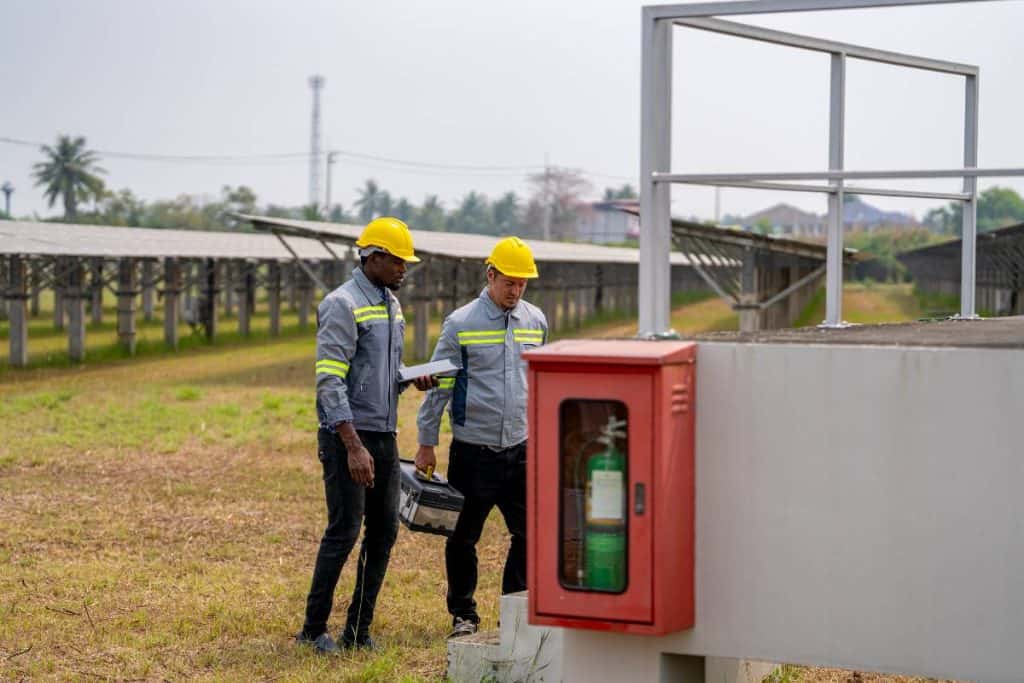
Let’s recap the key takeaways:
Solar storage unlocks the 24/7 potential of solar energy. Save money while achieving greater energy independence and backing up your home during outages!
Carefully weigh battery technology options like lead-acid and lithium-ion when designing your solar storage system. The right chemistry maximizes performance and lifespan.
Strategies like controlling depth of discharge, temperature, and charging behavior help extend battery longevity so your system keeps humming for years to come.
Professional guidance ensures proper solar panel and battery sizing, positioning, electrical integration, and maintenance for optimal efficiency.
While batteries represent an investment upfront, the long-term savings from slashing energy bills and rising home values make solar storage finances a no-brainer!
FAQs
What are the best solar batteries on the market right now?
Leading brands like Tesla Powerwall, LG Chem, and Sonnen offer high-performing lithium-ion solar batteries with 10+ year lifespans. Evaluate your needs and budget to choose the right option. LG Chem is a great mid-range choice.
Does solar storage allow completely off-grid living?
Yes! With sufficient battery capacity and solar array size, you can sever ties with the electrical grid completely. This requires careful load calculations and system oversizing to account for bad weather, but it is quite achievable.
How much does a 10 kWh solar battery storage system cost?
A small-scale 10 kWh lithium-ion solar energy storage system costs $7,000-$12,000 including professional installation. Larger-capacity systems reach upwards of $25,000+. Tax credits and incentive programs provide significant savings.
Can I install solar storage batteries myself?
While physically possible for a DIY handyperson, solar storage system configuration and electrical integration are complex. Engaging professional solar installers ensures proper setup, compliance to codes, safety, and optimization.
How long should a quality lithium-ion solar battery last?
The average lifespan of a properly maintained lithium-ion solar battery is 10-15 years. Advanced chemistry batteries are warrantied to retain at least 70-80% of original capacity for 10 years, but can operate for 5+ years after that before needing replacement.
How can a solar battery system provide backup power during potential power outages?
A solar battery system can provide backup power during power outages by storing excess energy generated by solar panels and making it available for use when the grid goes down. This can help homeowners maintain power for essential appliances and devices.
What are the benefits of using solar batteries in a residential solar panel system?
The benefits of using solar batteries in a residential solar panel system include increased energy independence, reduced reliance on the grid, savings on energy costs, and the ability to store excess energy for later use.
Conclusion
I love empowering homeowners to break free from restrictive energy monopolies by unlocking the limitless potential of solar power and sustainable living.
Schedule a consultation with me to discuss your energy goals, house electrical profile, and budget. Together we’ll design the perfect solar-plus-storage solution tailored precisely to your needs!
